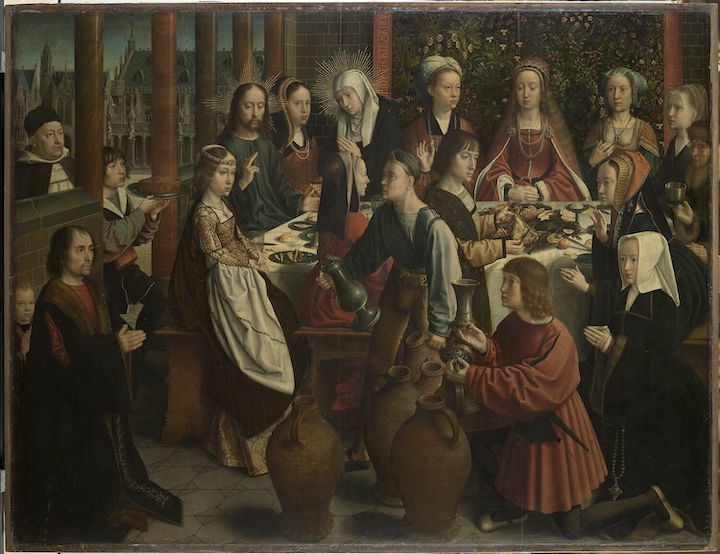Many years ago, when my now-wife and I were engaged, we took a test called a “FOCCUS Inventory,” which is a sort of compatibility test required by the diocese for young couples preparing for marriage. The object of the exercise, as I recall, was to identify areas of potential disagreement or discord between would-be-spouses, so that these sources of friction, or potential friction, could be addressed before, rather than after, the couple wed.
Marriage is much more (and sometimes much less) than two young people might imagine. There’s wisdom in hashing out ahead of time some of the more mundane – but no less important – elements of wedded bliss. If nothing else, it gives the pastor some idea of what submerged rocks may lie ahead, even if the couple remains obstinately naive.
We took the test separately and then met with a young priest in the parish to go over our results. He reminded us that the test was essentially diagnostic. There aren’t really any “right’ or “wrong” answers, he assured us, just answers which might present an occasion for further reflection, consideration, and conversation. Except, we were to discover, there are both right and wrong answers.
Many of the questions on the test were about the sort of practical consideration which could easily be overlooked by starry-eyed young people in love: Who will handle the finances? Have you discussed how children might affect career plans for one or both of you? Do you expect your spouse-to-be to change once you’re married?
As it happens, my wife and I answered that last question differently. She answered “No,” bless her, which of course is the correct answer. People who marry one person desperately hoping they’ll turn out to be someone else are in for a rude awakening. It rarely works that way. Old dogs, new tricks, etc.
As you might suspect by now, I answered, “Yes.” Red flag. I had not just given a different answer, but on this test with no wrong answers, I had given a wrong answer. Father’s face took on a serious look, a look of consternation.
“We should talk about this. Stephen, why do you expect her to change?” I could tell by my fiancée’s face that she wanted to ask a similar question, though I suspected that she would have worded it a bit more strongly.
I answered with a question of my own: “Well, if the goal of marriage is to help both of us grow in holiness, for each of us to be a help to the other in getting to heaven, then what’s the point of the Sacrament if it leaves us just as we are now?”
Father sighed, gave a wry smile, and said, “That’s not what they meant by the question.”

I couldn’t help myself: “Well they should have. And, anyway, that’s what I meant by my answer.”
Now it was her turn to sigh, my beautiful bride-to-be. She had no delusions; she knew she was marrying a wisenheimer. She knew it all too well. Mercifully for me, and as we have already documented, she had every expectation that I would be that way forever. And she still went through with it.
The point of the story is not that my wife is a patient and understanding woman. (Well, not only that.) The drama of each human life plays out between the person one is and the person one is becoming. We are all somewhere in between. We risk disaster if we don’t aspire to be more than who we are – if we don’t hope and pray and work to change, to convert, to become more and more the person we are called to be.
At the same time, this idea of “the person I am meant to be” can become its own kind of delusion. It is as easy as it is dangerous to fall in love with an idea, whether an idealized version of ourselves or of others. It is a peculiarly human trait to see in others what we want to see, and to believe that which we wish to be true. It’s a curious thing that the human heart can be so eager to believe what it wishes were true.
The truest love and friendship are forged, neither from pure ideals, nor from merely worldly connections. We are both body and soul; exalting one over the other to the point of separation invariably destroys both. The man who loves “humanity” can fail to love his fellow man. The one who loves his own – his self, his tribe – over and against all others only ultimately diminishes both.
Human friendship does not exist as an abstraction. The idea of friendship is not a friend. Nor is the idea of a family or a nation either of those. But neither can man become himself if his heart never goes beyond his own flesh and life.
Gaudium et Spes, in one of Pope John Paul II’s favorite and most frequently cited passages from the Council, cuts to the heart of the matter:
The truth is that only in the mystery of the incarnate Word does the mystery of man take on light. For Adam, the first man, was a figure of Him Who was to come, namely Christ the Lord. Christ, the final Adam, by the revelation of the mystery of the Father and His love, fully reveals man to man himself and makes his supreme calling clear. It is not surprising, then, that in Him all the aforementioned truths find their root and attain their crown.
To see this is to see the world as it really is. It is to learn the difference between real and unreal love. So much of our history has been a wild careening between materialism and idealism. At the fulcrum, as it were, stands the God Man, Christ Incarnate, holding the whole of creation together. In Him, we begin to make sense to ourselves.
__________















